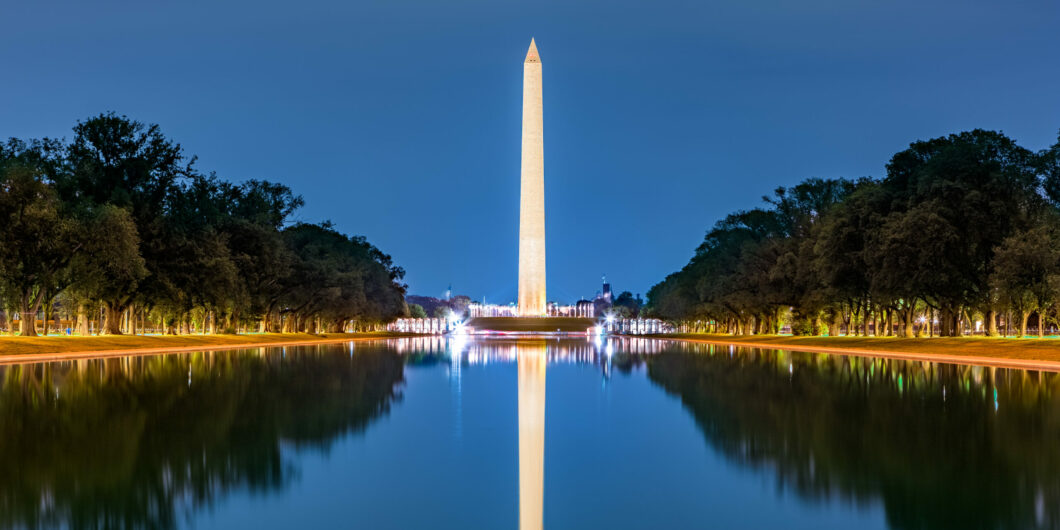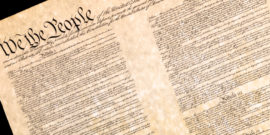Politics is its own sort of endeavor in free societies, quite distinct from either utility maximization or truth-seeking.
Remember the Founding
In his most recent essay, Compact Magazine columnist Michael Lind urges readers to “Forget the Founding Fathers.” He argues that respect for the American Founding constitutes a “cult” which inhibits our ability to make sound policy. Bizarrely, Lind claims that appeals to the U.S. Constitution and the Declaration of Independence prevent Americans from having “nice things” such as “a living wage, labor unions, guaranteed access to inexpensive health care, or adequate social insurance.”
Despite what Lind thinks, the American Founding is not a dead letter. Our Constitution is rooted in eternal principles that point the way towards true social renewal. The ideas that animated the Founding are still full of vital energy, and the actual deeds of the Founders can serve as models for political action.
Lind has been part of the “national conservatism” vanguard for some time now. In fact, he gave a speech on industrial policy titled “What Would Alexander Hamilton Do?” at the last National Conservatism conference. Lind has either become persuaded that he was in error for asking such a question, or is now a hypocrite. This more recent essay reveals there is nothing nationalist, let alone conservative, about his ideology. Instead, he panders to the deeply unpatriotic liberal establishment’s low opinion of the American Founding.
Conservatism should be a defense of the permanent things, but Lind seems to suggest there are no enduring political truths. Nationalism should aim at preserving the nation as it really is, but Lind seems to sneer at its history. Though he blusters about the limits of “the powerful technocratic progressive strain on the American center left,” there is little in his ideology that resists the tug of tinkering and central planning. Surely conservatives can find a better approach to politics in the Founding.
The Founding and the Idea of the Common Good
There are major flaws in Lind’s account of the American Founding. At National Review, Jay Cost, Jack Butler, and Dan McLaughlin have done able work poking holes in his narrative. Beyond these clear historical problems, there are also deep issues with Lind’s treatment of the Founding’s political theory.
Lind is undoubtedly correct that some libertarians have overemphasized certain aspects of the American Founding. As he and his allies in the national-conservative camp eagerly point out, many on the right have for decades prioritized individual liberty over a vision for the common good. By denigrating the Founding, however, Lind is seriously neglecting the actual common good the nation was constituted to secure.
What exactly was the Founders’ vision for the common good? In his 1776 Thoughts on Government, John Adams wrote that “The foundation of every government is some principle or passion in the minds of the people.” Nations are not mere material entities; they are spiritual bodies. “The noblest principles and most generous affections in our nature then,” Adams continued, “have the fairest chance to support the noblest and most generous models of government.” To that end, the Founders sought to root Americans’ sense of the common good in exalted conceptions of liberty and virtue.
The American Revolution was fought in defense of the people’s rights. The Founders knew that absolute power and arbitrary government substitute private will or the desires of a faction for what is truly necessary for the flourishing of all citizens. Therefore, the Founders put strict limits on the powers government can exercise, and separated those powers both vertically between the states and the federal Union, and horizontally between the three branches of the federal government.
At the same time, though, the Founders believed that virtue was necessary for a healthy republic. “If there is a form of government then, whose principle and foundation is virtue,” Adams wrote in his Thoughts on Government, “will not every sober man acknowledge it better calculated to promote the general happiness than any other form?” Citizenship requires the people to rise above private or factional interests. To stay free, the Founders believed, a people must act virtuously.
Still, the Founders were no utopians. They understood that a primary role of government is to step in when virtue does not prevail. The Founding was not some anarchist rejection of all authority or power. In Federalist 70, for instance, Publius maintains that “energy” is “a leading character in the definition of good government.” The Framers of the Constitution gave the federal government more power than it had under the Articles of Confederation precisely because they wanted it to energetically secure the common good.
As we reckon with serious challenges, the words and deeds of the Founders should serve as an inspiration and a guide. They offer us a far grander vision than the naked materialism of liberals and postliberals alike.
The wisdom of the Constitution is a balance between energy and limits, individual rights and the common good, freedom and virtue. The most pressing questions facing our country—from national security or economic policy to the drug crisis or other social issues—need answers with just such a balance. In this way, the Founders established standards of political judgment to which the American people can repair.
Remembering the Deeds of the Founders
Whatever we may conclude about the political theory of the American Founding, it is important to remember the men who articulated it were something more than ideologues. They were statesmen. In The Federalist, Publius denounces “theoretic politicians” more dedicated to ideology than the actual practice of politics. The Founders did not just leave us musty documents and statements of theory—they left us deeds to revere.
Lind, however, refuses to interpret the Constitution on these terms. At times, his essay sounds as though it could have come from the pen of Charles Beard, the progressive historian who argued that the Constitution’s ratification was a kind of conspiracy by economic elites to protect their power and privilege. Lind attempts to draw a sharp contrast between the men who declared independence and the men who framed the Constitution. He claims that populists “tend to identify with the grassroots anti-British rebels of the War of Independence,” and “not with the bewigged gentlemen in stockings and buckled shoes who wrote the federal Constitution in Philadelphia in 1787.”
But what does Lind think populists should make of George Washington? He was a leader among both the “grassroots anti-British rebels” and the “gentlemen… who wrote the federal Constitution.” Washington unified the populist energy of the minutemen and the political theory of the colonial elite to forge a nation strong enough to defy the total might of the British Empire. Surely Americans today can learn some lessons from Washington’s greatness.
Washington’s true significance lies in his political action. His statesmanship should serve as a model of prudence. In war and peace alike, Washington’s deeds can teach Americans how to harness the energy of the nation. His humble retirement from both the Continental Army and the presidency can teach us also about the limits of power.
In times of heated political division, Lind’s rejection of the example of Washington and the other Founders would handicap our ability to pursue the common good. The American Revolution and the ratification of the Constitution can both demonstrate how political rivals can come together in times of emergency to rationally deliberate about the common good. Our leaders need more of the Founders’ prudence, not less.
Washington is a symbol of the American Founding. We put his face on our money, erected a monument to him in our nation’s capital, and lovingly preserve his home because he embodied the dearest principles and highest aspirations of our republic. Dismissing this as mere “ancestor-worship” as Lind does is to dismiss the nation itself.
Postliberalism’s Leftward Drift
For some time now, the so-called “postliberal” writers associated with Compact have been drifting leftward. Over the last year, Sohrab Ahmari, a founder and editor of Compact, has become an advocate of the New Deal and “social democracy.” Certainly when it comes to economic policy and national security issues, there is little to distinguish Compact’s writers or the broader, so-called “New Right” from liberals in the Democratic party.
Much like the liberals they supposedly despise, Lind and his comrades have adopted a low materialism in politics. Rather than spiritual goods such as liberty, honor, or virtue, they would have Americans pursue “nice things” like a higher minimum wage or more socialized medicine. Lind does not disagree that technocratic solutions to these material problems are necessary, he only believes the proper ones are slightly different than those currently advocated by the ruling elite.
Material welfare is certainly an aspect of the common good, but a key conservative insight is that man is more than matter. “Civilization can only be creative and life-giving in the proportion that it is spiritualized,” Russell Kirk once wrote. “Otherwise the increase of power inevitably increases its power for evil and its destructiveness.” Our idea of the common good must be inspired—like the Founders’—by a fuller account of human nature.
At the end of his essay, Lind suggests that some of the Founders may have “relevant views” which should only be defended or applied to present circumstances in a limited way. He expresses concern that treating the Founding as a “sacral authority,” though, would chain us to dead history. Lind is right that the future is in our own hands. But he is wrong about the past.
As we reckon with serious challenges, the words and deeds of the Founders should serve as an inspiration and a guide. They offer us a far grander vision than the naked materialism of liberals and postliberals alike. Even lying in their graves, the American Founders are still more relevant than Michael Lind.


